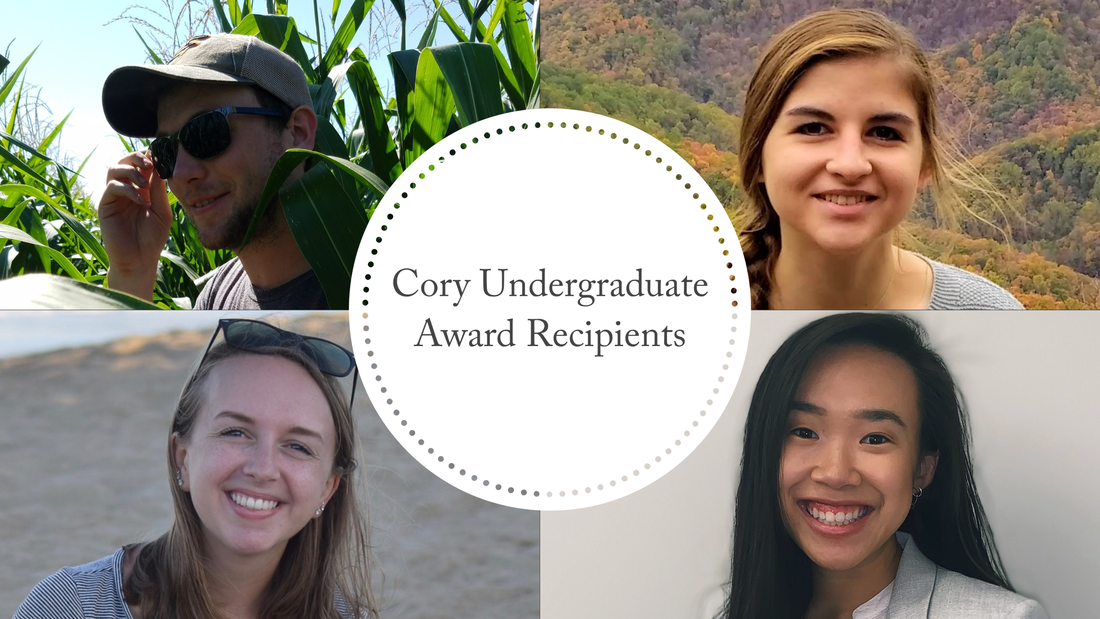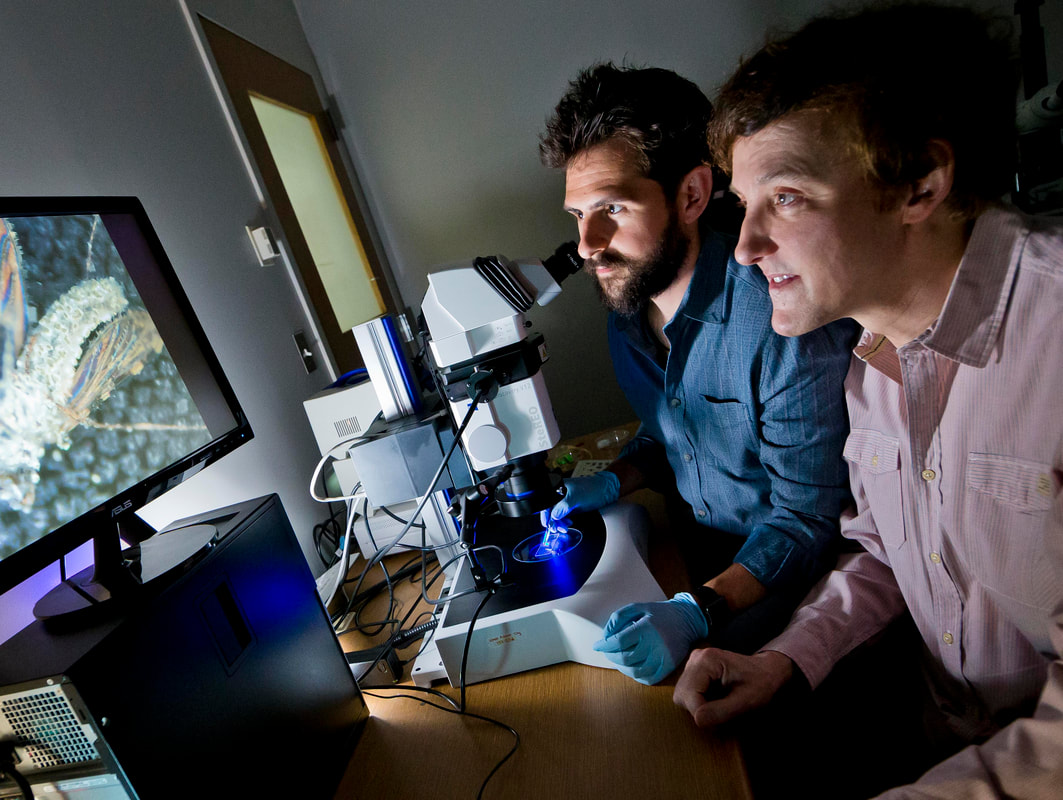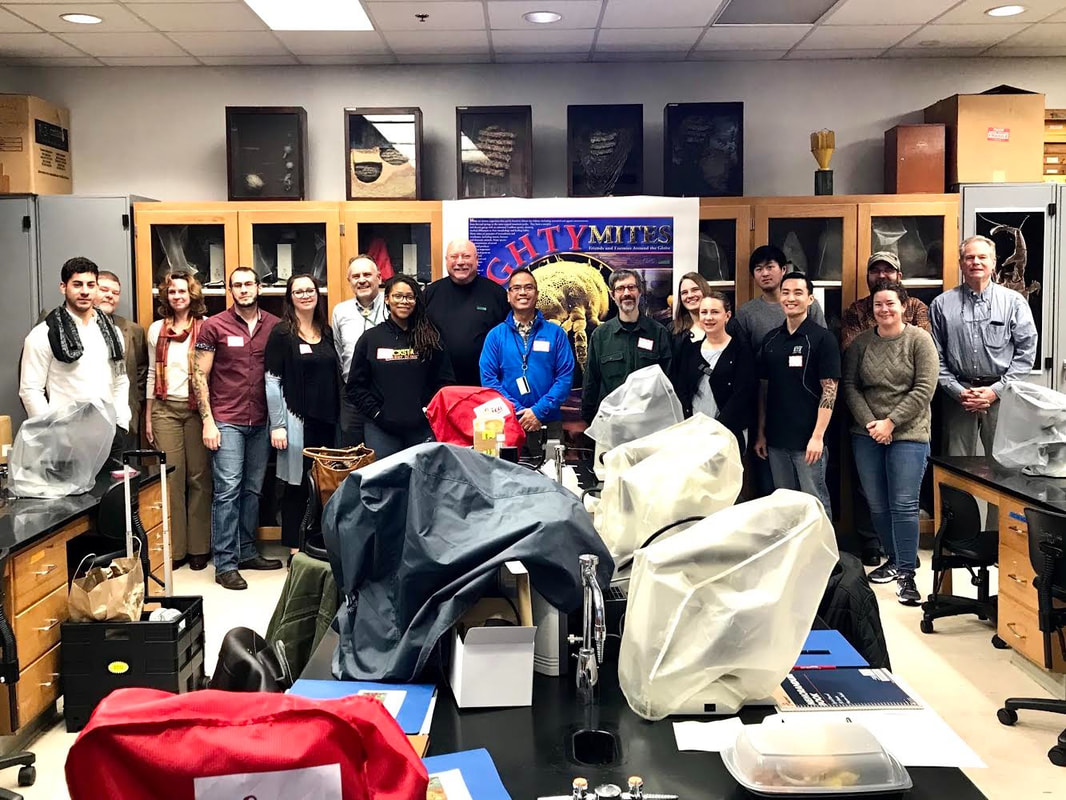|
The St. Leger laboratory, Department of Entomology at The University of Maryland (UMD), invites applications for a Postdoctoral Scholar – Employee position starting Spring 2020 on a National Science Foundation funded project entitled “Unraveling the mechanisms by which novel fungal-plant associations evolve”. The candidate post-doctoral associate will work on a unique experimental system involving a radiating genus of fungi (Metarhizium spp) which have rapidly diversifying lifestyles. The goal is to ask fundamental questions about lifestyle shifts - where a pathogen jumps from one host (insect) species to another, or changes its role from just pathogen to plant symbiont. By taking a comparative approach, with a strong set of hypotheses from ecological and evolutionary theory, the project will provide insights into the genetic and molecular underpinnings determining evolutionary shifts in lifestyles that will be generally applicable to pathogens and hosts. Understanding these shifts is critical, especially in light of environmental change, invasive species and the laboratories work on transgenic approaches to controlling vectors of human disease. A combination of experimental approaches will be used, and there will be many opportunities to develop new projects to explore the evolution of lifestyle shifts.
Click here for the complete Job Announcement. Written by: Elizabeth Z. Dabek, MS student (Hooks Lab) and Zac Lamas, PhD student (Hawthorne Lab)
Dr. Chris Nice, an evolutionary biologist from Texas State University, is working with a group of collaborators across the US to find clues as to how hybridization influences speciation. His work takes him to some amazing places, from coastal California to the alpines of the Sierra Nevada. In these areas he searches for a special genus of butterfly, the Lycaeides. Interspecies mating occurs within this group of related butterflies. Dr. Nice and his team search for a variety of cues to see if hybridization played a role in generating the diversity of species in this genus. Congratulations to Aditi Dubey, Maggie Lewis, Galen Dively and Kelly Hamby whose research paper, "Ecological impacts of pesticide seed treatments on arthropod communities in a grain crop rotation", was published last week in the Journal of Applied Ecology.
Their findings, "Pesticide seed treatments can impact arthropod taxa, including important natural enemies even when environmental persistence and active ingredient concentrations are low." https://besjournals.onlinelibrary.wiley.com/doi/abs/10.1111/1365-2664.13595
written by: Maria Cramer, PhD student, Hamby Lab and Lindsay Barranco, MS student, vanEngelsdorp Lab
When you conduct research on urban pollinators, it’s impossible to ignore the way your research impacts people and the way people impact your research. This was the overarching message from Dr. Mary Gardiner who studies the ecology of urban greenspaces in Cleveland, Ohio. Over the past several decades, Cleveland has lost half its residents, resulting from protracted economic decline. Currently, population levels equal what existed in Cleveland in 1900, resulting at least in part from a steady rise in home foreclosures. The home foreclosures and resulting vacant lots from demolished homes have led to a major increase in greenspace. The city of Cleveland maintains these lots by mowing on a monthly basis which costs the city upwards of 3 million dollars per year. Dr. Gardiner wondered if the weedy and grassy spaces within Cleveland’s 30,000 vacant lots could provide valuable bee habitat. Would planting flowering plants, exotic or native, provide better habitat than what the vacant lots offered? Which species of bees might these green spaces attract? And importantly, could providing bee habitat help beautify demolished and vacant areas?
|
Categories
All
Archives
June 2024
|
Department of Entomology
University of Maryland
4112 Plant Sciences Building
College Park, MD 20742-4454
USA
Telephone: 301.405.3911
Fax: 301.314.9290
University of Maryland
4112 Plant Sciences Building
College Park, MD 20742-4454
USA
Telephone: 301.405.3911
Fax: 301.314.9290




 RSS Feed
RSS Feed




